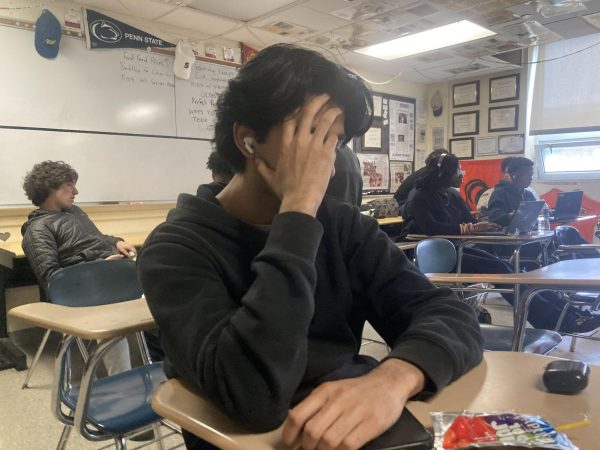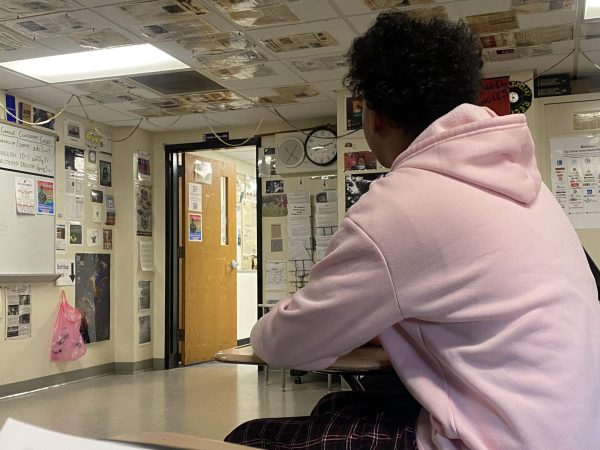Why Remote Learning Works Better for Some Than Others
The Stamford High School website has a link for everything you need to know about distance learning.
December 14, 2020
How often do you find yourself staring at a screen? Are you on social media or are you doing your schoolwork?
There are many questions that can be asked about a student’s overall screen time. As a result of the current pandemic we have been faced with, many teachers and school administrators have turned to use programs such as google classroom, zoom, google meets, etc., to interact with the students at home. These new programs have been seen as a saving grace for many teachers, but is it really? Although this new online schooling may be beneficial for teachers, as it allows them to keep in contact with their students from home, this online teaching has not been as beneficial from the student’s perspective.
It’s safe to say that multitasking is common among students. Although students may seem as though they’re paying attention to a lesson being taught to them via zoom, there’s a big possibility that not all their attention is focused on the lesson.
In a study done by two professors, James Kraushaar and David Novak at the University of Vermont, they found that “Students engage in substantial multitasking behavior with their laptops and have non-course-related software applications open and active about 42 percent of the time.” Not only do students spend the majority of their “school time” multitasking, but they also get distracted very easily.
According to Larry Rosen, a psychology professor at California State University–Dominguez Hills, he claims that “Students’ ‘on-task behavior’ started declining around the two-minute mark as they began responding to arriving texts or checking their Facebook feeds.” Furthermore, Rosen goes on to say, “By the time the 15 minutes were up, they had spent only about 65 percent of the observation period actually doing their schoolwork.”
Not only are students paying less attention to their lesson and their schoolwork because of the use of computers in and out of the classroom, but the amount of time students are spending on their screens is also affecting their mental health.
According to Jennifer Katzenstein, the director of psychology and neuropsychology at the Hopkins All Children’s Hospital, Katzenstein states, “Increased screen time usage … has been found to be linked with increases in depression, anxiety, and perceived attention problems.” Moreover, Katzenstein states, “Exposure to light in the evening, especially blue light from our computer screens may suppress nocturnal melatonin secretion and alter circadian rhythms.”
Even though online learning might make teachers’ lives a little easier during these difficult times, it’s having a greater negative impact on the students. It is affecting a student’s mental health as well as impacting their education. Although online learning continues to have negative ramifications on students, a rise of covid cases has given many schools no option other than to close their doors. Online learning is the only way to keep our students physically safe, although it may be detrimental to student’s mental health and education.














